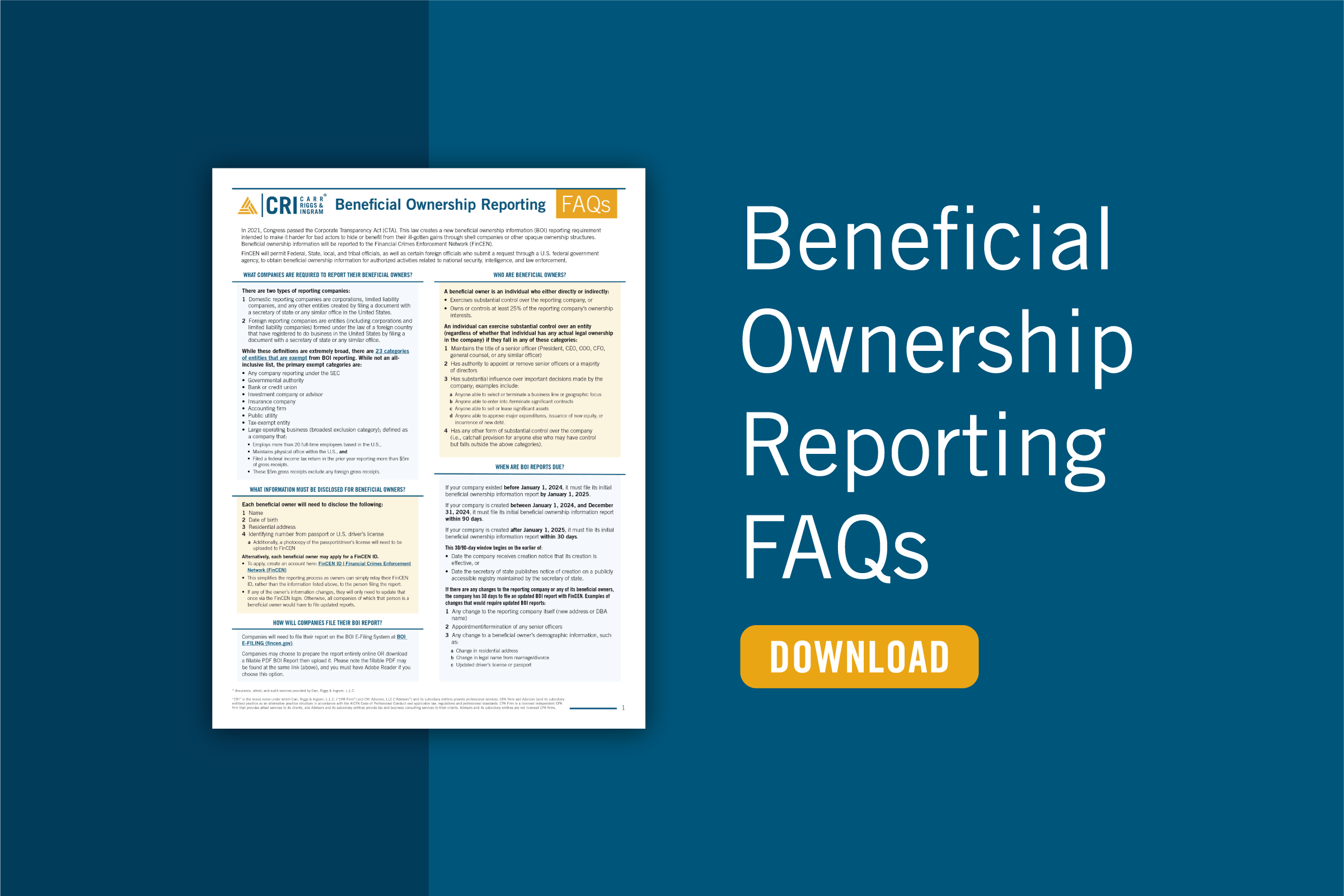A Look at Internal Controls and Processes for Evaluating Vendors
- Contributor
- Tom Carmichael, Jr.
Jan 12, 2022
Manufacturing and distribution companies should appraise vendors through various lenses since they are such an integral part of the company’s success. Given all of the discussion related to the increase in fraudulent activities, it is a good idea for businesses to incorporate an evaluation of internal control processes for accounts payable and vendors. Here are five ways to implement internal vendor review controls designed to deter and detect fraudulent activities:
1. Require suppliers to sign a code of conduct every year.
Although vendors should sign a code of conduct when the relationship begins, they should also do so at the beginning of each fiscal year. This process keeps the documentation up-to-date and ensures that all parties are aware of conduct expectations, especially when any management or ownership changes occur.
2. Ensure the vendor set-up process incorporates segregation of duties.
This process should include:
- a policy requiring that the employee who sets up new vendors or changes vendor information not have the ability to create vendor payments,
- an independent vendor review and approval by an employee who has no role in the vendor account creation process,
- periodically verifying any changes to vendor master files',
- stringent guidelines regarding nepotism, vendor favoritism, and conflicts of interest, and
- a requirement for mandatory vacations, or job rotations, of all key personnel involved in purchasing and the vendor payment process.
3. Implement check validation of select vendor payments.
The sample should include significant and frequent payments to the same vendor, especially for a round number or the same number. Companies should not share the selection data. Instead, they should change it as often as possible. It may be best to automate this process by either using internal controls built into the accounts payable software or purchasing separate computer-assisted auditing software.
4. Conduct vendor audits*.
Companies should conduct periodic random audits of their vendors, especially if they detect any suspicious activities. The audits should include reviews for potential overbilling and kickbacks. If a vendor declines an audit request, a firm should consider that a red flag and plan next steps accordingly.
5. Establish an anonymous fraud hotline for employees and others to report irregularities.
Tips–particularly those made through anonymous hotlines–are one of the most effective methods of uncovering fraud.
As with all types of business fraud, perceiving detection is the most effective step that companies can take to deter white collar criminals. Therefore, be sure to communicate to key personnel and vendors that your firm is serious about combating fraud. CRI’s forensic accountants can put another set of eyes on any suspicious vendor activity.










































































































































































































































































































































































































































































